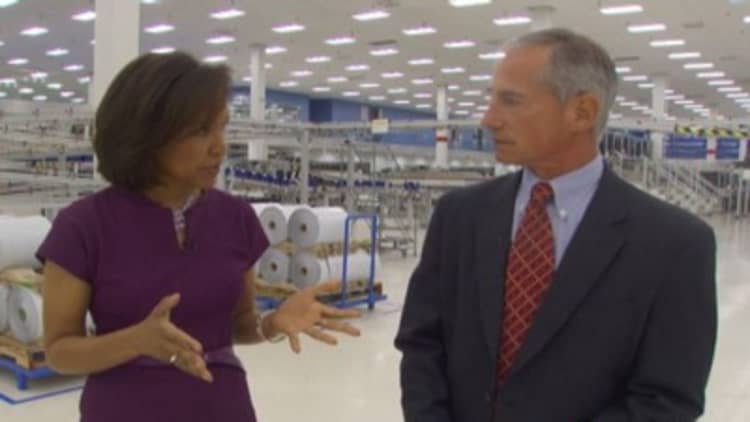
Express Scripts' Dr. Steve Miller is in the business of helping companies rein in high drug costs. When Gilead Sciences priced its hepatitis C drug Sovaldi at $1,000 per pill, he denounced the drugmaker for unfair pricing.
"If you look at the price of treating hepatitis C, it went from just five or six years ago at $25,000. Then, there were some new ones that came out at $50,000," said Miller, chief medical officer of the nation's largest pharmacy benefit firm.
At $84,000 for a 12-week treatment, Sovaldi represents a 68 percent increase over previous drugs.
"They are taking a premium on top of a premium, and we think that's not sustainable." Miller said.
Read More$84,000 question: How to cut drug costs
Express Scripts' research lab projects hepatitis C drug-spending will double in the U.S. this year with the launch of Sovaldi and companion treatments, and increase 200 percent in 2015 and 2016.
"The cocktail to treat the patients is going to cost well north of $100,000 per patient. We have 3 million patients in the U.S. with hep C. That would be $300 billion to treat them all."
Fighting back
Miller has embarked on a pricing crusade, launching a coalition to bring together insurers and employer health plans. His strategy is to leverage their buying power to push Gilead to lower the price by letting the drugmaker know they're prepared to drop Sovaldi when rival drugs come onto the market over the next year.
"If there's a product that comes out that is less expensive, we are going to move our entire market share there," he said.
Read MoreHepatitis C drug costs beat alternative: Merck
Gilead has defended Sovaldi's pricing, arguing that it cures the hepatitis C virus, which now causes more deaths in the U.S. than HIV, and results in health savings over the long term.
But in countries with universal health systems, like the U.K., the drugmaker sells the drug for 25 percent to 35 percent less than the U.S. price.
Drug industry consultant Lauren Barnes said it's unlikely U.S. regulators will move to force the company to do the same here.
"I don't think our country is ready to stomach drug negotiations and drug regulations to that extent," said Barnes, senior vice president of Avalere Health.
But with more high-priced specialty treatments in the pipeline—at a time when more Americans are gaining health coverage through Obamacare—some analysts say it could be a matter of time before the U.S. pushes for price controls.
Read MoreFalling into Obamacare's drug loopholes
"If it was just hep C and this was one big drug therapy," it might be manageable, said Ana Gupte, an insurance analyst with Leerink Partners. But Sovaldi is just the tip of the iceberg.
"We have a number of new breakthrough cancer therapies that are likely to come to market in the next few years. It will place a huge burden on payers," she said.
A tipping point
Express Scripts' Miller said he expects the furor over Sovaldi will prove to be a tipping point for U.S. pricing. He's encouraged that many drugmakers are increasingly willing to work with payers.
"I have had more pharmaceutical companies reach out to me in the last couple of months … saying, 'Listen, we want to deal with your coalition,'" he said. '"We want to sit down and understand what is going to be a fair price for our next product."'
Read MoreUnpaid medical bills hurt credit scores
Gilead isn't one of them. But one way or another, things will change.
"If the market doesn't do it, we are going to end up with government intervention—and that no one wants."
—By CNBC's Bertha Coombs.


